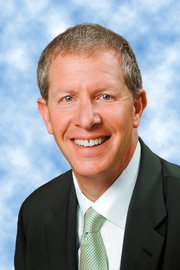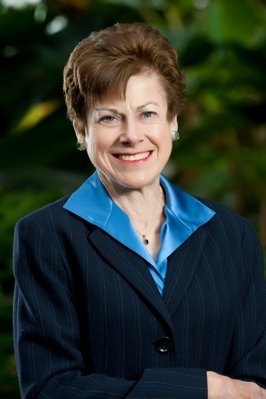Douglas B. Diamond
 Douglas B. Diamond is a highly-consulted expert in the research and evaluation of housing markets and finance across the globe. Doug’s career has spanned decades, most recently serving in a consultant role with the World Bank and USAID.
Douglas B. Diamond is a highly-consulted expert in the research and evaluation of housing markets and finance across the globe. Doug’s career has spanned decades, most recently serving in a consultant role with the World Bank and USAID.
Beginning as an assistant professor of economics and business at North Carolina State University, he served as both a scholar-in-residence and research economist for the U.S. Department of Housing and Urban Development’s Office of Economic Affairs. He also worked with the National Association of Home Builders as a senior policy analyst and an assistant staff vice president for housing policy.
Since then, Doug has examined housing markets throughout the world from a variety of angles. He has traveled from South Africa to Russia and from India to Croatia to consult with governments and groups on such topics as establishing government-owned mortgage banks, evaluating housing finance subsidies, developing laws on mortgage lending and funding, and designing a secondary mortgage funding facility.
Doug has authored several books on the subject of housing and housing finance. He also contributed articles to such publications as Land Economics, Urban Studies, Contemporary Policy Issues, and the Journal of Urban Economics.
Doug holds a bachelor’s degree in economics from the University of Rochester and masters’ and doctorate degrees in economics from the University of Chicago.
Gary London
 Gary London is President of The London Group Realty Advisors, a diversified real estate strategic advisory, development management, investment, capital access and analysis firm whose clients include investors, developers, lenders and public agencies.
Gary London is President of The London Group Realty Advisors, a diversified real estate strategic advisory, development management, investment, capital access and analysis firm whose clients include investors, developers, lenders and public agencies.
In practice as an analyst and strategic advisor for four decades, Mr. London is well known throughout the U.S. as a counsel to many of the nation’s largest investors, lenders and practitioners. He has a reputation as a prescient, forward thinker who translates opportunities (or problems) into profits.
Mr. London is an Instructor at The Burnham-Moores Center for Real Estate, University of San Diego as well as a Professor at Arizona State University’s graduate program in real estate development (MRED). He had taught at the University of California, San Diego Extension for 24 years. Previously, he was West Region Director of Real Estate Consulting for Price Waterhouse and Executive Director of The Goodkin Group. He is a graduate of U.C. Berkeley and received his Master’s degree from San Diego State University.
A “Distinguished Toastmaster” in Toastmasters International, Mr. London speaks regularly to industry and business organizations, frequently writes and is often quoted in the media, and is a columnist for the San Diego Business Journal. He is also featured in the San Diego UnionTribune’s weekly “EconoMeter” sharing his views on the great economic issues of our time.
He was featured on CBS Evening News “Eye On America” for his commentary on the real estate market, and has also testified before the House of Representatives Committee on Banking, Finance and Urban Affairs. In 1995 he was featured in the San Diego Business Journal’s “Who’s Who In San Diego”; and was honored as “Member Of The Year” in 1996 from the San Diego Land Economics Society (Lambda Alpha International).
Kevin Villani
 Kevin E. Villani is a principal of University Financial Associates LLC and an international economic and financial consultant. Most recently, he was the Vice-Chairman of Imperial Credit Commercial Mortgage Investment Corporation (ICCMIC). In the early eighties, he served in various capacities at Freddie Mac, including Chief Economist and Chief Financial Officer. Prior to that, he was Deputy Assistant Secretary and Chief Economist for HUD in Washington D.C. Dr. Villani serves on the Board of Provident Investment Council (PIC) as an independent trustee.
Kevin E. Villani is a principal of University Financial Associates LLC and an international economic and financial consultant. Most recently, he was the Vice-Chairman of Imperial Credit Commercial Mortgage Investment Corporation (ICCMIC). In the early eighties, he served in various capacities at Freddie Mac, including Chief Economist and Chief Financial Officer. Prior to that, he was Deputy Assistant Secretary and Chief Economist for HUD in Washington D.C. Dr. Villani serves on the Board of Provident Investment Council (PIC) as an independent trustee.
From 1990-97, Dr. Villani was the Wells Fargo Visiting Professor of Finance at the University of Southern California. He has also served as an adjunct professor at the University of Pennsylvania, Northwestern University, George Washington University, Purdue University and George Mason University in Northern Virginia.
Dr. Villani has been instrumental in the development and introduction of many of the innovative financial instruments currently in use in domestic and international capital markets. He has written or co-authored approximately 100 books and articles and has edited several academic journals.
Dr. Villani has a B.S. degree in mathematics from the University of Massachusetts at Amherst and M.S. and Ph.D. degrees in economics and finance from Purdue University. He is a former associate in the Society of Actuaries.
Lynn Reaser
 Lynn Reaser, Ph.D., is Chief Economist for Point Loma Nazarene University (PLNU) at the Fermanian Business & Economic Institute (FBEI). The Institute engages in economic analysis, modeling, and forecasting with practical and actionable recommendations for corporations, non-profit organizations, and government agencies.
Lynn Reaser, Ph.D., is Chief Economist for Point Loma Nazarene University (PLNU) at the Fermanian Business & Economic Institute (FBEI). The Institute engages in economic analysis, modeling, and forecasting with practical and actionable recommendations for corporations, non-profit organizations, and government agencies.
As a professional economist Dr. Reaser brings extensive experience in the financial services sector with a keen ability to translate complex economic issues into understandable language with relevant and actionable implications. Dr. Reaser, a leading spokesperson for the University, conducts over 300 media interviews annually, including newspapers, magazines, television, radio, wire services, and the internet. She also addresses numerous domestic and international conferences and forecast events. She is presently a member of the PLNU School of Business Faculty, teaching managerial economics in the MBA program. Involved in public policy, she is the Chief Economist of the Council of Economic Advisors for California State Controller John Chiang, and is a participating economist in the S & P/Case-Shiller Real Estate Index and many other leading economic gauges and surveys. Dr. Reaser is active in many professional organizations including serving as past President of the National Association for Business Economics (NABE), which has also named her a Fellow for her contributions to the profession. This year, she received the NABE Outlook Award for the most accurate economic forecast in 2011-12.
Leading a skilled business and economic research team at the Fermanian Business & Economic Institute (FBEI), she is highly proficient at analyzing economic data, modeling, and forecasting, with special attention given to providing clear and concise recommendations for the reader. She brings an engaging, personal, and practical approach to writing and speaking on economic issues to all audiences with a passion towards using economics as a tool to assist people personally and in their enterprises. In her role as Chief Economist for the FBEI she provides actionable economic counsel to PLNU and its stakeholders. Guest lecturing, publishing, consulting, and public speaking are among many of her responsibilities. Consulting clients include Sempra Generation, San Diego Zoo Global, Equinox Center, San Diego Military Advisory Council, Jacobs and Cushman San Diego Food Bank, as well as other trade associations and professional organizations.
From 1999 to 2009, she served as the Chief Economist for the Bank of America Investment Strategies Group. Dr. Reaser provided the global and U.S. economic framework for investment strategy for high net-worth, institutional, and brokerage clients, encompassing over $500 billion under management. She previously served as Barnett Bank’s (Bank of America) and First Interstate Bank’s (Wells Fargo Corporation) Chief Economist. In these roles she furnished economic advice for all of the Bank’s various business lines, including consumer finance, business banking, real estate, and wealth management, and built and led an extraordinarily cohesive team of professional economists who advised senior management on tactical and strategies involving all aspects of their business.
Previously she served as Chairman of the American Bankers’ Association’s Economic Advisory Council. She has also served on the Governor’s Council of Economic Advisors for the State of California; Leadership Florida; Boston Economic Club; was a fiscal advisor to cities of Los Angeles and San Francisco; California’s Economic Strategy Panel; Chairman of the Board of Economic Advisors to the Los Angeles Area Chamber of Commerce; President of the Economic Roundtable of Jacksonville; President of the Los Angeles Chapter of the National Association for Business Economics; and member of the Editorial Advisory Board, Contemporary Economic Policy. She holds a B.A. in Economics (cum laude) and a M.A. and Ph.D. in Economics, all from the University of California, Los Angeles. She resides in San Diego, Ca.
Marney Cox
 Mr. Cox is the Chief Economist for the San Diego Association of Governments (SANDAG), the comprehensive planning organization for the San Diego region, where he specializes in regional economies and transportation finance. During his tenure with SANDAG, Mr. Cox’s accomplishment include: The San Diego Regional Economic Prosperity Strategy; Environmental Mitigation Funding Strategies; Plan of Finance for the Regional Transportation Plan, and the San Diego Regional Demographic and Economic Forecasts. Recently he helped lead an effort to acquire the South Bay Expressway Toll Road; and is currently working on developing a strategy to pay for the construction and operation of a third major border crossing with Mexico
Mr. Cox is the Chief Economist for the San Diego Association of Governments (SANDAG), the comprehensive planning organization for the San Diego region, where he specializes in regional economies and transportation finance. During his tenure with SANDAG, Mr. Cox’s accomplishment include: The San Diego Regional Economic Prosperity Strategy; Environmental Mitigation Funding Strategies; Plan of Finance for the Regional Transportation Plan, and the San Diego Regional Demographic and Economic Forecasts. Recently he helped lead an effort to acquire the South Bay Expressway Toll Road; and is currently working on developing a strategy to pay for the construction and operation of a third major border crossing with Mexico
Michael Lea
 Dr. Michael Lea is a Lecturer of Finance and the former Director of The Corky McMillin Center for Real Estate at San Diego State University. Dr. Lea is an internationally known authority on housing and mortgage finance. He has published over 75 articles and book chapters, including the editing and co-authoring of an influential World Bank publication on emerging market housing finance in 2009. His current research interests are comparative housing finance systems, the future of the government sponsored enterprises and solutions to the mortgage market crisis.
Dr. Michael Lea is a Lecturer of Finance and the former Director of The Corky McMillin Center for Real Estate at San Diego State University. Dr. Lea is an internationally known authority on housing and mortgage finance. He has published over 75 articles and book chapters, including the editing and co-authoring of an influential World Bank publication on emerging market housing finance in 2009. His current research interests are comparative housing finance systems, the future of the government sponsored enterprises and solutions to the mortgage market crisis.
Dr. Lea has extensive industry experience. He has over 25 years of financial services industry experience, including more than 18 years of international advisory work in 28 countries spanning 6 continents. He has provided advice on a wide variety of mortgage topics as a consultant to international development agencies, government-sponsored enterprises, trade groups, regulatory agencies and major private sector financial institutions in developed and emerging markets and the U.S. He has held senior executive positions at several major financial institutions in the U.S.
Dr. Lea has organized several conferences and made numerous presentations to government agencies, legislative committees, multi-lateral institutions, corporate boards and management, trade groups and academic and professional organizations. He has taught at Cornell University, San Diego State University, the University of California, San Diego and the Wharton International Housing Finance Program at the University of Pennsylvania. He received his Ph.D. in economics from the University of North Carolina, Chapel Hill.
Richard Green
 Richard K. Green, Ph.D., is the Director of the USC Lusk Center for Real Estate. He holds the Lusk Chair in Real Estate and is Professor in the USC Sol Price School of Public Policy and the Marshall School of Business.
Richard K. Green, Ph.D., is the Director of the USC Lusk Center for Real Estate. He holds the Lusk Chair in Real Estate and is Professor in the USC Sol Price School of Public Policy and the Marshall School of Business.
Prior to joining the USC faculty, Dr. Green spent four years as the Oliver T. Carr, Jr., Chair of Real Estate Finance at The George Washington University School of Business. He was Director of the Center for Washington Area Studies and the Center for Real Estate and Urban Studies at that institution. Dr. Green also taught real estate finance and economics courses for 12 years at the University of Wisconsin-Madison, where he was Wangard Faculty Scholar and Chair of Real Estate and Urban Land Economics. He also has been principal economist and director of financial strategy and policy analysis at Freddie Mac. More recently, he was a visiting professor of real estate at the University of Pennsylvania’s Wharton School, and he continues to retain an affiliation with Wharton. He is or has been involved with the Lincoln Institute of Land Policy, the Conference of Business Economists, the Center for Urban Land Economics Research, and the National Association of Industrial and Office Properties. Dr. Green also is a Weimer Fellow at the Homer Hoyt Institute, and a member of the faculty of the Selden Institute for Advanced Studies in Real Estate. He was recently President of the American Real Estate and Urban Economics Association.
Dr. Green earned his Ph.D. and M.S. in economics from the University of Wisconsin-Madison. He earned his A.B. in economics from Harvard University.
His research addresses housing markets, housing policy, tax policy, transportation, mortgage finance and urban growth. He is a member of two academic journal editorial boards, and a reviewer for several others. His work is published in a number of journals including the American Economic Review, Journal of Economic Perspectives, Journal of Real Estate Finance and Economics, Journal of Urban Economics, Land Economics, Regional Science and Urban Economics, Real Estate Economics, Housing Policy Debate, Journal of Housing Economics, and Urban Studies. His book with Stephen Malpezzi, A Primer on U.S. Housing Markets and Housing Policy, is used at universities throughout the country. His work has been cited or he has been quoted in the New York Times, The Wall Street Journal, The Washington Post, the Christian Science Monitor, the Los Angeles Times, Newsweek and the Economist, as well as other outlets. He recently gave a presentation at the 31st annual Federal Reserve Bank of Kansas City Economic Symposium, where his work was cited by Federal Reserve Chairman Ben Bernanke. The National Association of REALTORS, the Ford Foundation, and the Lincoln Institute for Land Policy have funded grants to support some of Dr. Green’s research. He consults for the World Bank.
In 1995, Dr. Green was honored as “Teacher of the Year” by the University of Wisconsin Graduate Business Association, and soon thereafter was inducted into that University’s Teaching Academy.
Richard Peiser
 Richard Peiser has been the Michael D. Spear Professor of Real Estate Development at the Graduate School of Design since 1998. He is also Director of the university-wide Real Estate Academic Initiative created in 2003. He was previously on the faculty at the University of Southern California (1986-1998) as associate professor of urban planning and development, director of the Lusk Center for Real Estate Development, and Academic Director of the Master of Real Estate Development Program that he founded in 1986. His courses: Real Estate Finance and Development, Field Studies in Real Estate, Planning and Urban Design, and Advanced Real Estate Development and Finance offer basic and advanced-level study of real estate at the GSD. He also taught the studios: Alternative Urban Pattern Prototypes: Looking at Pomona/Los Angeles, Newry, Northern Ireland—Revealing History in Urban Reconstruction, and Alternative Futures for the West Lake, Hangzhou, People’s Republic of China, as well as field studies in Texas, California, New Hampshire, Idaho, and Shanghai. He is directing the school’s activities in advanced education for senior real estate executives, notably the six-week Advanced Management Development Program in Real Estate.
Richard Peiser has been the Michael D. Spear Professor of Real Estate Development at the Graduate School of Design since 1998. He is also Director of the university-wide Real Estate Academic Initiative created in 2003. He was previously on the faculty at the University of Southern California (1986-1998) as associate professor of urban planning and development, director of the Lusk Center for Real Estate Development, and Academic Director of the Master of Real Estate Development Program that he founded in 1986. His courses: Real Estate Finance and Development, Field Studies in Real Estate, Planning and Urban Design, and Advanced Real Estate Development and Finance offer basic and advanced-level study of real estate at the GSD. He also taught the studios: Alternative Urban Pattern Prototypes: Looking at Pomona/Los Angeles, Newry, Northern Ireland—Revealing History in Urban Reconstruction, and Alternative Futures for the West Lake, Hangzhou, People’s Republic of China, as well as field studies in Texas, California, New Hampshire, Idaho, and Shanghai. He is directing the school’s activities in advanced education for senior real estate executives, notably the six-week Advanced Management Development Program in Real Estate.
Peiser’s primary research has focused on developing an understanding of the response of real estate developers to the market place and to the institutional environment in which they operate, particularly in the areas of urban redevelopment, affordable housing, and suburban sprawl. Current research projects focus on non-performing loans, suburban redevelopment, and new towns. A planner and entrepreneur-developer, as well as an expert in real estate finance, he has also demonstrated an interest in spatial and design issues as well as in the economics of land development. He has been active in the Urban Land Institute, where he is now a Trustee, and of which he has authored numerous publications on his policy-oriented research. In addition to teaching basic courses in development finance, he will also be initiating advanced and post-professional training programs in this area at the GSD. Peiser received a BA from Yale University, an MBA from Harvard Business School, and a PhD from the University of Cambridge.
Ryan Vaughn
Ryan Vaughn is a Data Scientist at Bank of America working to model aspects of the residential real estate market. He has multiple publications in the Environmental and Urban Economis literatures. Ryan also works as a volunteer consultant on coastal and environmental issues for non profit organizations including The Nature Conservancy and The Surfrider Foundation.
David Geltner

Professor David Geltner has been at MIT since 2002 where he has held the George Macomber Chair and currently is Professor of Real Estate Finance in the Department of Urban Studies & Planning with a joint appointment in Engineering Systems in MIT’s School of Engineering.
Geltner served as Academic Director of the MIT Center for Real Estate during 2003-08 and is the faculty chair of MIT’s Master of Science in Real Estate Development (MSRED) program. He is the lead author of the most widely-cited real estate investments textbook, “Commercial Real Estate Analysis & Investments”, now in its third edition.
Recipient of the U.S. Pension Real Estate Association’s prestigious Graaskamp Award in 2011 for excellence and influence in real estate investment research, Geltner has served as Academic Advisor to the National Council of Real Estate Investment Fiduciaries (NCREIF), and as Director of MIT’s Commercial Real Estate Data Laboratory which has developed pioneering commercial property price and investment performance indices based on transactions prices (including the Moody’s/RCA CPPI, the NCREIF-based TBI, and the FTSE-NAREIT PureProperty® Indices). Geltner served from 1999-2012 as the External Academic Member of the Real Estate Investment Committee of the State Teachers Retirement System of Ohio (a pension plan sponsor with over $5 billion of directly managed real estate holdings).
Prior to MIT, Geltner was the REEAC Professor of Real Estate in the Finance Department of the College of Business Administration at the University of Cincinnati. He has been teaching graduate level real estate investments and finance since 1989. Geltner received his PhD in 1989 from the Massachusetts Institute of Technology, in the Civil Engineering Department in the field of infrastructure finance & economics. He also has degrees in urban studies from Carnegie-Mellon University and the University of Michigan. A 2006 study published in Real Estate Economics found Geltner to be the most influential academic real estate writer, based on number of citations during 2000-2004 in top academic real estate journals.
Michael Sklarz
 Dr. Michael Sklarz has more than 30 years of professional experience in real estate research, analysis and real estate technology product development in the United States. Previously, Dr. Sklarz was Head of Analytics at Fidelity National Financial and Chief Valuation Officer for Fidelity National Information Solutions. Dr. Sklarz was also the Director of Research at Prudential Locations, Inc., where he helped pioneer the development of new analytic tools and databases to track and forecast the U.S. real estate market. Dr. Sklarz holds a B.S. in engineering mathematics from Columbia University and an M.S. and Ph.D. in ocean engineering from the University of Hawaii.
Dr. Michael Sklarz has more than 30 years of professional experience in real estate research, analysis and real estate technology product development in the United States. Previously, Dr. Sklarz was Head of Analytics at Fidelity National Financial and Chief Valuation Officer for Fidelity National Information Solutions. Dr. Sklarz was also the Director of Research at Prudential Locations, Inc., where he helped pioneer the development of new analytic tools and databases to track and forecast the U.S. real estate market. Dr. Sklarz holds a B.S. in engineering mathematics from Columbia University and an M.S. and Ph.D. in ocean engineering from the University of Hawaii.
Jeffrey D. Fisher
 Jeffrey D. Fisher, Ph.D. is President of the Homer Hoyt Institute and Professor Emeritus of Real Estate at the Indiana University Kelley School of Business. He is the Educational Consultant to the National Council of Real Estate Investment Fiduciaries (NCREIF), and also does Consulting for ARGUS Software and Real Capital Analytics (RCA) and serves on the advisory board of Sterling Valuation./p>
Jeffrey D. Fisher, Ph.D. is President of the Homer Hoyt Institute and Professor Emeritus of Real Estate at the Indiana University Kelley School of Business. He is the Educational Consultant to the National Council of Real Estate Investment Fiduciaries (NCREIF), and also does Consulting for ARGUS Software and Real Capital Analytics (RCA) and serves on the advisory board of Sterling Valuation./p>
Dr. Fisher has served on the board of directors of the Pension Real Estate Association, the National Council of Real Estate Investment Fiduciaries (NCREIF) and the Real Estate Research Institute (RERI). He received PREA/Graaskamp Award for Research Excellence from the Pension Real Estate Association, the Richard Ratcliff award and the Pioneer Award from the American Real Estate Society, the George Bloom Award from the American Real Estate and Urban Economics Association and the Martin S. Katz Memorial Award from the American Property Tax Council (APTC).
He has served as an expert witness in court cases for several clients including Inland Steel, Simon Property Group and the Internal Revenue Service (IRS). He has consulted for the Federal Reserve System in Washington, D.C. and the multifamily group of the Federal National Mortgage Association (Fannie Mae). He has appeared on CNBC to discuss real estate investment and is frequently quoted by the media.
Dr. Fisher was a founding trustee of The Appraisal Foundation that was formed in 1987 by the major appraisal organizations as a self-regulatory organization and source of standards for the appraisal industry. He served as President of the American Real Estate and Urban Economics Association (AREUEA) in 1990 and the 1986-87 Chairman of the Real Estate Center Directors and Chairholders’ Association. He has worked with many professional organizations to develop and teach courses and seminars including NCREIF, PREA, the Appraisal Institute, the CCIM Institute, NACORE and others.
Professor Fisher has a doctorate in Real Estate from Ohio State University. He is a coauthor of Real Estate, 9th edition published by John Wiley and Sons, coauthor of Real Estate Finance and Investments, 14th edition, published by McGraw-Hill, and coauthor of Income Property Valuation published by Dearborn. His books have been translated into Japanese, Korean and Chinese.
Dr. Fisher has published numerous articles in journals such as The Journal of the American Real Estate and Urban Economics Association, Journal of Real Estate Finance and Economics, The Journal of Urban Economics, The Journal of Real Estate Research, Journal of Portfolio Management, National Tax Journal, Public Finance Quarterly, The Appraisal Journal, Real Estate Review, The Real Estate Appraiser and Analyst, Real Estate Issues, The New Corporate Finance and the Journal of Property Tax Management.








